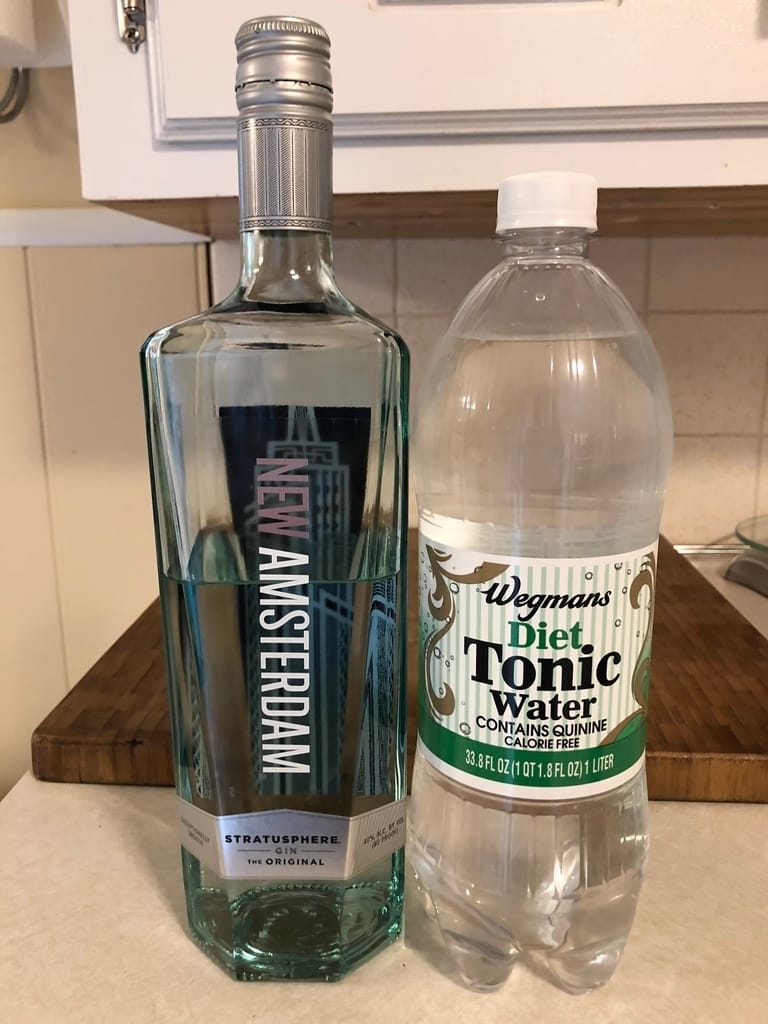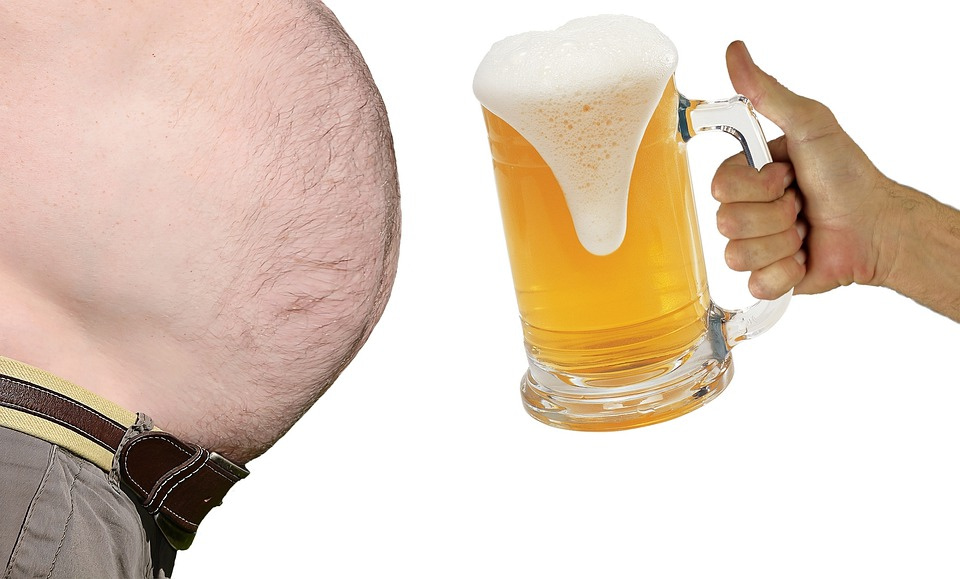It’s Saturday night. Maybe you’re watching the hockey game, hanging out on your patio, or hosting some friends for a game night.
There are beers, wine, and margaritas everywhere.
And you’ve had a LONG week. You’re trying hard to lose body fat, sticking close to your nutrition like a champ. Work, though, was stressful; you had three days of long meetings, late work hours, and family craziness at home.
A drink would feel AMAZING.
What the heck? you think. What harm would one beer do?
You’re right—that first beer is fantastic. It feels good to relax, to forget about the week, to just chill.
Beer #1 turns into beer #2, and because you’re down in calories from your fat loss nutrition plan, those beers hit you harder than you anticipated. You’re buzzed way before you normally would be, and at the end of beer #2, you’re legitimately contemplating both beer #3 AND a handful of the chips on the table in front of you.
By the time midnight rolls around, you’ve had 3.5 beers, 2 handfuls of chips, a bunch of guacamole, and three chocolate chip cookies.
You go to bed feeling tired and full, and you wake up in the morning feeling sick and angry. How did your one-beer-plan turn into a hangover? And when you step on the scale, the morning gets even worse:
You’re up 2.5 pounds.
You spend the morning mentally punishing yourself for your transgressions and chugging coffee, swearing silently that you’ll never drink again.
Until the next Saturday rolls around, and you’re staring at another tempting beer.
And so the cycle starts all over again.
*****
Alcohol is such a large part of our social habits that it’s difficult to separate some events and habits from the drinks we serve during them. Sunday football games are beer parties, Friday ladies’ night is a wine festival, and Taco Tuesday is held right at Margaritaville.
When it comes to fat loss, though, we have to account for our alcohol intake. It may be possible to enjoy drinks AND lose body fat, but you have to consider several things in order to make that happen:
1. The fat loss ramifications of drinking
2. The behavioral ramifications of drinking
3. The individual ramifications of drinking for you and your fat loss goals
Let’s start with the fat loss ramifications.
Here’s a little known fact:
Alcohol has calories.
Shocking, right?
Alcohol itself has 7 calories per gram, regardless of how many carbs or other nutrients add to a drink’s calories.
So even a drink with no carbs or sugar or other added calories will still have calories.
But many of the drinks we partake in have calories from things in addition to the calories from the alcohol. Wine and beer both contain calories from their carbohydrate content, for example, and big fruity blended drinks, like pina coladas, have even more calories from their added fat content.
A big double IPA? Well over 300 calories and easily over 20g carbs.
A big glass of pinot noir? Close to 200 calories and 10g carbs.
A 12 ounce pina colada? 600+ calories, 80+ grams of carbs, and 7g fat.
If you’re on a fat loss diet, you might not even get 80g of carbs at a meal, much less in a single drink.
But calorie content isn’t the only issue with combining alcohol and fat loss.
The other problem is how your body processes alcohol—because while it’s working to get the alcohol out of your system, all your body’s other metabolic processes take a back seat.
Once you have a drink, your body works harder to clear out the alcohol than it does to burn fat. So every drink you have shuts down the fat loss process until said drinks are out of your system, which can take anywhere from an hour to several hours or even half a day depending on how high your BAC gets.
Losing a day of fat burning might not sound awful, especially if you figure that you were following your nutrition the other six days of the week and probably lost some fat then.
But add your post-drinking bloated hangover weight to the mix (remember, you’re up 2.5 pounds the next day), and it’s hard to tell whether you lost ANYTHING that week at all.
Metabolically, then, alcohol both adds excess calories to your body and forces your body to shut off fat burning for a while.
Both are awful for seeing results.
Now how about the behavior ramifications of alcohol when you’re trying to lose fat?
Think about what alcohol does:
Lowers your inhibitions.
You probably know a real-life Elaine from Seinfeld—someone who opens her “vault” and spills all her secrets after a few drinks.
You probably know folks who make other poor decisions while drinking, too—maybe they flirt too much, or worse, make bad relationship decisions while drinking.
Alcohol lowers all of those normally higher boundaries, and it also lowers your food boundaries, too. Sticking tight to a diet is harder under the influence. Many people end up eating foods they didn’t plan to eat because alcohol convinced them to do so.
And the social pressure to eat while drinking is immense. How many stories do you have of late nights out drinking that ended with greasy diner food somewhere at 3 am?
Alcohol changes your ability to make sound decisions in all kinds of ways, and your food decisions are similarly affected.
So let’s say you’ve considered all of this—that alcohol has calories, that it shuts down your fat loss temporarily, and that it often coerces you into eating things you never would have otherwise—if you STILL want to drink while on a fat loss diet, you’ve got one more thing to think about:
YOURSELF.
Your individual habits, current level of leanness, fat loss goals, and your level of self-control all affect whether you could have a few drinks and still lose fat.
Say you’re Chris Rombola. You’re jacked. You’ve been lifting since God was a boy, and you carry more muscle mass than several average adult men combined. Your nutrition is perfect all the time, you never miss work outs, and you get a good amount of quality sleep to insure you always recover well.
You might have some wiggle room for a couple drinks one night.
But if you really are Chris Rombola, you also know that your goals are far above average fat loss goals. Chris isn’t a guy with 50 pounds of body fat to lose, and his version of lean is much harder to achieve. Everything has to be precise, 100%, to meet the goals he sets for himself.
So even though Chris might have the wiggle room to lose fat and have a few drinks, he isn’t going to do it—because his goals outweigh the opportunity to drink.
Most of us, though, are not Chris Rombola. We don’t have years of training and muscle mass to rely on, and we don’t have 100% consistent nutrition habits. And thus we have less wiggle room.
Remember, wiggle room in a fat loss diet is earned by consistent adherence to the plan, but it is also counteracted by the level of leanness you wish to achieve. If you’ve been consistent for months on end, you might have some wiggle room to indulge a drink or two—with the caveat that you weigh the pleasure of a few drinks against the knowledge that you’re going to slow your progress down by having them.
In other words, there’s no such thing as a free drink.
In my own fat loss phases, I have gone through periods where I cut alcohol entirely and where I had a couple drinks every Saturday night and still lost fat.
Before I tell you about how I did it, here’s the single most important thing you have to remember about alcohol and fat loss:
Drinking alcohol slows down your fat loss progress. Period.
It slowed mine down, for sure.
Here are the top ten things I did to minimize the impact alcohol would have on my fat loss:
1. I only drank low-calorie spirits with low-calorie mixers. No beer, no wine, no sugary mixed drinks. Unflavored gin, vodka, bourbon, scotch, and whiskey only, with diet mixers only—diet tonic water, club soda, diet iced tea, diet soda.
2. I drank tons of water before having alcohol and tons of water after. Alcohol will dehydrate you, and I work out on Sundays. If I was going to drink on a Saturday, I had to wake up without a headache.
3. I was 100% on my nutrition and my workouts all the rest of the time. No wiggle room there if I wanted wiggle room for drinks.
4. I made all my own drinks, measured them carefully, and never made them as doubles. A single gin and diet tonic with 1.5 ounces of gin clocks in around 110 calories.
5. I stopped drinking if I was no longer enjoying the drinks. That meant I sometimes only had one.
6. I never drank while eating. People seem to drink more if alcohol is their primary in-meal beverage. Just think about how easy a beer goes down while you’re eating salty food. There’s a reason they serve nuts for free in bars.
7. I never drank more than once a week, and I never drank at social events. If I couldn’t control the drink, I didn’t have it.
8. I went to bed sober. This is a big one for me—mostly because I hate waking up feeling like my morning is ruined by what I did the night before. But going to bed sober also insured that much of the alcohol was out of my system before bed. Our metabolisms do slow down while we sleep, and while it isn’t enough to normally matter, going to bed sober meant my body could resume normal metabolic activities faster.
9. I never let my alcohol intake influence my food choices. There were no late-night Mighty Taco runs, no steak and eggs at the local diner, no raiding the cupboards for any carb I could shove in my face. If I had a healthy meal planned before bed, I still ate it, and I stuck 100% to that plan.
10. I cut the drinks when I needed to speed up my results. One caveat of drinking during fat loss is that you can’t complain about slow results—because the slowness is your own fault. So when I was ready for faster results, I stopped drinking every week.
I’ve been training for ten years now, and I carry more muscle mass than most women my size. I’ve never been more than 30 pounds overweight (though I have been overweight), and I have never had the metabolic issues associated with being overweight—like Type II Diabetes, cardiovascular disease, hormonal issues.
So what I was able to do is not necessarily right for you. You might not be able to drink alcohol and lose fat at the same time.
But that’s the point of my last initial caveat:
You have to make your decisions about alcohol based on YOUR medical history, your habits, and your fat loss goals.
And once you make the decision to drink, you have to own the results.
Even if you don’t like them.
About the author

Kristen Perillo
Kristen Perillo is a teacher by day, trainer and nutrition coach by night. She's also a Star Wars nerd, writer, dog (and cat) mom, peanut butter junkie, and Seinfeld devotee. Fitness has done nothing but make her life better, and she is privileged to show other people that it will do the same for them.



Recent Comments